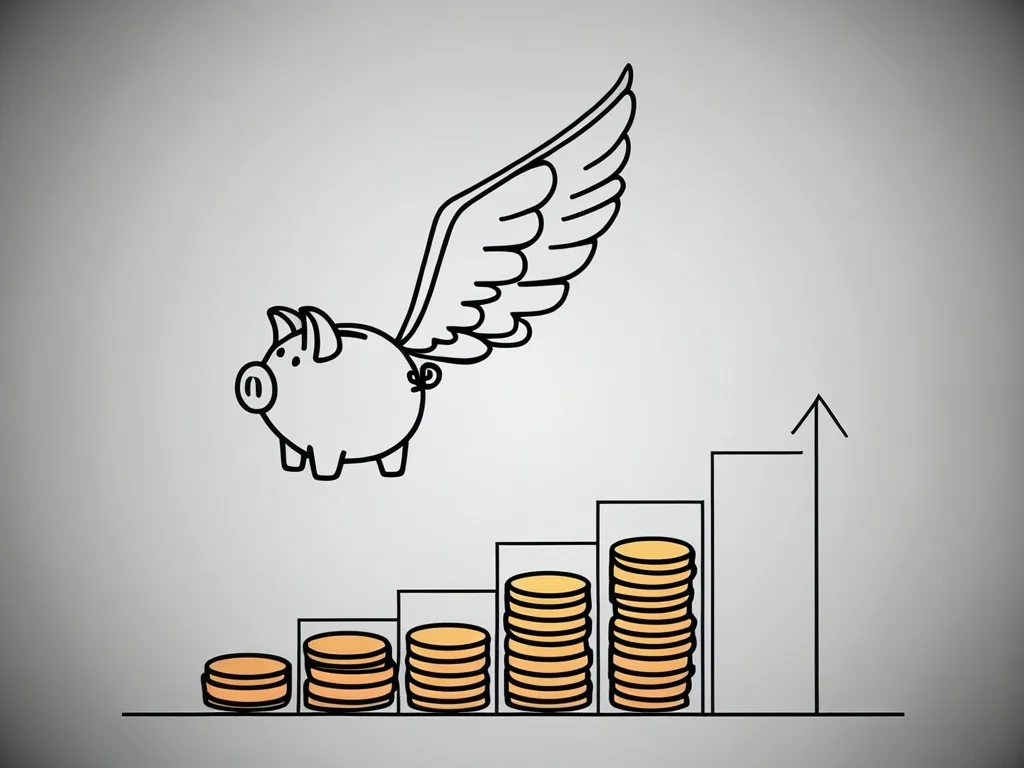Imagine a financial strategy that isn’t just about budgeting or following market trends, but one that synchronizes your financial decisions with your body’s natural rhythms. This approach, which we can call “biorhythmic budgeting,” leverages your internal clock to make smarter, more effective money moves.
Understanding Your Biorhythms
Your body operates on various cycles, each influencing different aspects of your life. There are the physical, emotional, intellectual, and intuitive cycles, all of which can impact your decision-making process. For instance, your physical cycle can affect your energy levels, while your emotional cycle influences your mood and stability. The intellectual cycle, on the other hand, impacts your focus and cognitive abilities.
The 90-Minute Cycle
One of the most significant cycles to consider is the 90-minute cycle, part of your circadian rhythm. This cycle repeats throughout the day and night, with your body going through phases of high alertness and low energy. For example, if you wake up at 7:00 AM, you’re likely to be at peak alertness around 9:00 AM and again around 2:00 PM. Your coordination is usually at its highest around 2:30 PM, and your reaction time is quickest at 3:30 PM. By the late afternoon, around 5:30 PM, your cardiovascular and muscle strength are typically at their best.
Timing Your Financial Decisions
Knowing these cycles can help you time your financial decisions for maximum effectiveness. If you’re sharper with numbers in the morning, that might be the best time to review your budget or make investment decisions. On the other hand, if you’re more emotionally balanced in the afternoon, that could be the ideal time for making big purchases or negotiating financial deals.
Avoiding Impulse Buys
One of the biggest pitfalls in financial management is making impulse purchases when your willpower is low. By understanding your biorhythms, you can avoid these moments. For instance, if you know you tend to feel a dip in energy and focus around 4:00 PM, you might want to steer clear of shopping or making financial commitments during that time.
Capitalizing on Clear-Headed Moments
Conversely, you can capitalize on your clear-headed moments for important financial planning. If you’re most focused and alert in the morning, use that time to plan your financial strategy for the day or week. This could include setting financial goals, reviewing your expenses, or making long-term investment decisions.
Emotional Balance and Financial Decisions
Emotional balance is crucial when making financial decisions. When you’re in a stable emotional state, you’re less likely to make impulsive choices that could harm your financial health. For example, if you know you’re more emotionally balanced in the late morning, that might be the best time to discuss financial matters with your partner or financial advisor.
The Role of Intuition
Your intuitive cycle, often referred to as your “sixth sense,” can also play a significant role in financial decision-making. This cycle can influence your instincts and gut feelings about certain financial choices. By tuning into your intuition, you might avoid risky investments or spot opportunities that others might miss.
Real-Life Applications
Let’s consider a real-life example. Imagine you’re planning to buy a new car. Instead of rushing into the decision, you wait until you’re in a peak emotional and intellectual state. You review your budget, compare different models, and negotiate the price when you’re feeling clear-headed and emotionally balanced. This approach can help you make a more informed decision that aligns with your financial goals.
Organizational Benefits
This concept isn’t limited to personal finance; it can also be applied in organizational settings. Companies can benefit from understanding the biorhythms of their employees to optimize work schedules and tasks. For instance, assigning critical tasks that require high focus and energy during the peak alertness periods of the day can lead to better performance and productivity.
Personal Experience
I’ve personally found that understanding my biorhythms has significantly improved my financial management. By recognizing when I’m most alert and focused, I can tackle complex financial tasks with greater ease. For example, I always review my budget and financial reports in the morning when I’m most sharp. This helps me catch any discrepancies or areas for improvement before the day gets busy.
Creating a Biorhythmic Budget Plan
To implement biorhythmic budgeting, start by tracking your energy levels, focus, and mood over a few weeks. Note the times of the day when you feel most alert, focused, and emotionally balanced. Then, align your financial tasks with these periods.
- Morning: Use this time for detailed financial planning, budget reviews, and investment decisions.
- Late Morning: Engage in discussions about financial matters or make big purchases when you’re emotionally balanced.
- Afternoon: Avoid making financial decisions during your low-energy periods. Instead, use this time for less demanding tasks like organizing receipts or updating financial records.
- Evening: Reflect on your financial progress and set goals for the next day when you’re in a more relaxed state.
Conclusion
Biorhythmic budgeting is about aligning your financial decisions with your body’s natural cycles. By understanding and working with these cycles, you can make smarter, more effective financial choices. It’s not just about saving or spending; it’s about creating a financial strategy that feels effortless because it’s in harmony with your body’s natural flow. This approach can lead to better financial decisions and greater overall well-being.
In essence, your internal clock can become your most valuable financial tool, guiding you towards a more balanced and prosperous financial life. So, the next time you’re considering a major financial move, take a moment to check your biorhythms – you might just find that timing is everything.






